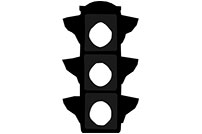On The Corner of 42nd Street and 5th Avenue
- February 25, 2013
- / Category Mythology
- / Posted By admin
- / Comments Off on On The Corner of 42nd Street and 5th Avenue
In our time, people are in the habit of thinking of mythology as something that only comes from the distant past, from a Golden Age, a Classical Era. This view depends upon the idea that mythology is the product of particular historical conditions – conditions that are long lost. According to this popular perception, there is something about our own society that is inherently incompatible with the authentic creation of mythology.
 Such a belief has its origin in a misunderstanding of mythology, supposing, on the one hand, that the old stories we retell today were uncritically received by past audiences, and presuming, on the other hand, that people today are too firmly anchored to reality to entertain any mythological notions. In truth, the people of times past were capable of holding models of reality every bit as critical and nuanced as our own. We are, in our turn, are not so thoroughly rational as we like believe.
Such a belief has its origin in a misunderstanding of mythology, supposing, on the one hand, that the old stories we retell today were uncritically received by past audiences, and presuming, on the other hand, that people today are too firmly anchored to reality to entertain any mythological notions. In truth, the people of times past were capable of holding models of reality every bit as critical and nuanced as our own. We are, in our turn, are not so thoroughly rational as we like believe.
The size and structure of our societies has changed dramatically. Our complex technology has transformed much of the rhythm of human life. Yet, we remain human.
Mythological is a central aspect of our humanity, an unshakable part of our psychological and social identity as a species. We cannot escape our mythological selves merely by transforming our outer worlds and irrigating them with electron streams.
Human societies have changed before, but mythology remained. As we change our world, and adjust our place in it, our mythologies have changed, but the sphere of mythology remains intact.
Just as the meaning of a story is often difficult to discern before its end, we do not recognize our mythology as mythology because it is our own. It is before us at all times, but remains obscured by a veil of familiarity.
The task of our time is to understand ourselves more fully by discovering the mythology of our recreated world. Only after we master our fear of the demons of our era, can we listen to the lessons it has to teach.
What our predecessors regarded as heroic achievements, we disregard as common, and unworthy of remark, or as shameful reminders of our lost purity. Like Oedipus, we have reigned atop the rubble of our forebears’ mythic legacy, presuming to treat its leftover treasures as our own, rather than ascending to the throne in our own right.
The Beast we must learn to love is the very world of technology we have created, with its grids lain over the meandering paths we once followed, and its electronic lights signaling when we may pass, and when the way is blocked to us.
The Golden Age is here, now. Hidden, here in our father’s house, with its familiar yet foreign splendor, there remains a doorway back to the palace of the Beast where our dying heart remains.
“The latest incarnation of Oedipus, the continued romance of Beauty and the Beast, stands this afternoon on the corner of Forty-second Street and Fifth Avenue, waiting for the traffic light to change.” – Joseph Campbell
